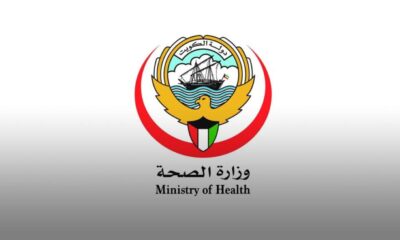KUWAIT: National Bank of Kuwait hosted several schools participating in Bankee to explore and simulate the practical application of the program that comes in collaboration with the Ministry of Education, Kuwait Anti-Corruption Authority «Nazaha», and Creative Confidence.
NBK’s executive management attended the event as part of its commitment to track the progress of Bankee and the extent to which schools are benefiting from the program, as well as measure its effect upon the students and teachers.
The event consisted of four main pavilions simulating classrooms and student-interaction methods, in addition to a corner specifically designed for the store where students are taught the fundamentals of spending, as well as a corner for interactive activities about earning and spending money, and finally a corner for donations to endorse the culture of aiding others and paying back to society.
The schools that participated in the event were Al-Fadhl Ibn Al-Abbas Elementary School for boys, Lulwa Mulla Saleh Al-Rabi’a Elementary School for girls, Um Al-Munthir Elementary School for girls, and Al-Sulaibikhat Elementary School for girls.
Bankee is the largest and first program in Kuwait, which is offered by NBK in collaboration with the Ministry of Education and Kuwait Anti-Corruption Authority «Nazaha». It aims to teach students core economic concepts and behaviors such as earning, spending, saving, and financial commitments, and instill core values such as honesty, integrity, personal development, accountability, and teamwork. The program also aspires to raise a generation that understands the importance of financial independence and stability and has the financial knowledge and skills to help achieve sustainable development and economic welfare for individuals and society.
The event witnessed remarkable interaction between the students and teachers about how the program operates in schools and the way students deal with its rich content, which raises their financial awareness.
From their part, the Bankee teachers expressed their appreciation for NBK’s efforts to support education and instill positive concepts in future generations, highlighting that Bankee has remarkably contributed to enhancing the financial literacy, skills and behaviors of the students.
Moreover, this event echoes NBK’s commitment to follow up with the program and trace its positive influence on the students’ behaviors by supplementing them with the necessary skills needed in managing their financials, in addition to the noticeable progress in their financial knowledge after applying the program in their schools.”
As part of its commitment to enriching the «Bankee» content, NBK has launched accounts on different social media platforms, such as Instagram, TikTok, and YouTube to enable all participants to access valuable content, activities, and events from schools around the year. Additionally, the program’s website has been launched in both Arabic and English, and the admission for the academic year 2025-2026 is now open.
The executive management’s follow-up visits to the schools further highlight the program’s significance. Many parents attended these visits, in which they expressed their pleasure with the positive influence they noticed in their children’s financial knowledge and behaviors.
The National Bank of Kuwait believes in the importance of initiatives between the private and government sectors, as they provide the youth with the needed and necessary knowledge and skills to achieve prosperity and well-being for Kuwaiti individuals and society.


















